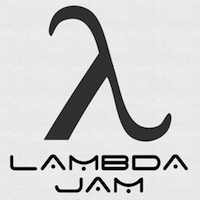31 Jul 2015
Walking through Chicago’s Museum of Science and Industry, I ran across an inspiring list of rules titled “Peter’s Laws”. Peter Diamandis is Chairman and CEO of the X PRIZE Foundation, best known for its $10 million Ansari X PRIZE for private spaceflight.
The Laws:
- If anything can go wrong, Fix It! (To hell with Murphy!)
Continue reading →
23 Jul 2015
What’s the correct way to pronounce the name of Apple’s Macintosh operating system, OS X? You can find the answer by asking OS X directly from the command line, as shown in this 11-second video.
Continue reading →
22 Jul 2015
GitHub Pages lets any holder of a GitHub account host static HTML pages at no cost. The bigger benefit: Pages hosted at GitHub automatically become part of GitHub’s content delivery network (CDN). People who visit your site will get faster page loads because of the CDN.
This article focuses on interacting with GitHub Pages via Git at the command line. The browser-based automatic page generator is already well-documented. Another purpose of this post: To put useful information about GitHub Pages all in one post, so I won’t have to go hunting around next time I forget this procedure!
Continue reading →
20 Jul 2015

Working in software development is like being the proverbial kid in candy store. Every new language is a shiny and delicious thing. Lambda Jam (which bounces between Chicago and Melbourne) is a traveling candy store. And, like the kid in the candy store, I am sometimes distracted by tangential temptation.
Most of my time is spent running WisdomGroup, where we focus on Ruby and Swift. We’re object-oriented all the way. Given that, why would I want to attend a functional programming conference like Lambda Jam? For the brain-stretching experience. If your background is anything like mine, you might enjoy it, too. Here’s why.
Continue reading →
30 Jun 2015
Performance is of paramount importance in parallel programming. The reason we are in the game of writing parallel programs is either to solve a problem faster than on a serial computer, or to solve a larger problem than could previously be done.
~D. Thiébaut, author
Parallel Programming in C for the Transputer
Some developers buy a Parallella board because they already know parallel programming. They knew what to do with the device the moment they laid eyes on it. Others (like me) are relatively new to parallel programming. We see Parallella as an inexpensive tool for hands-on learning.
Continue reading →




